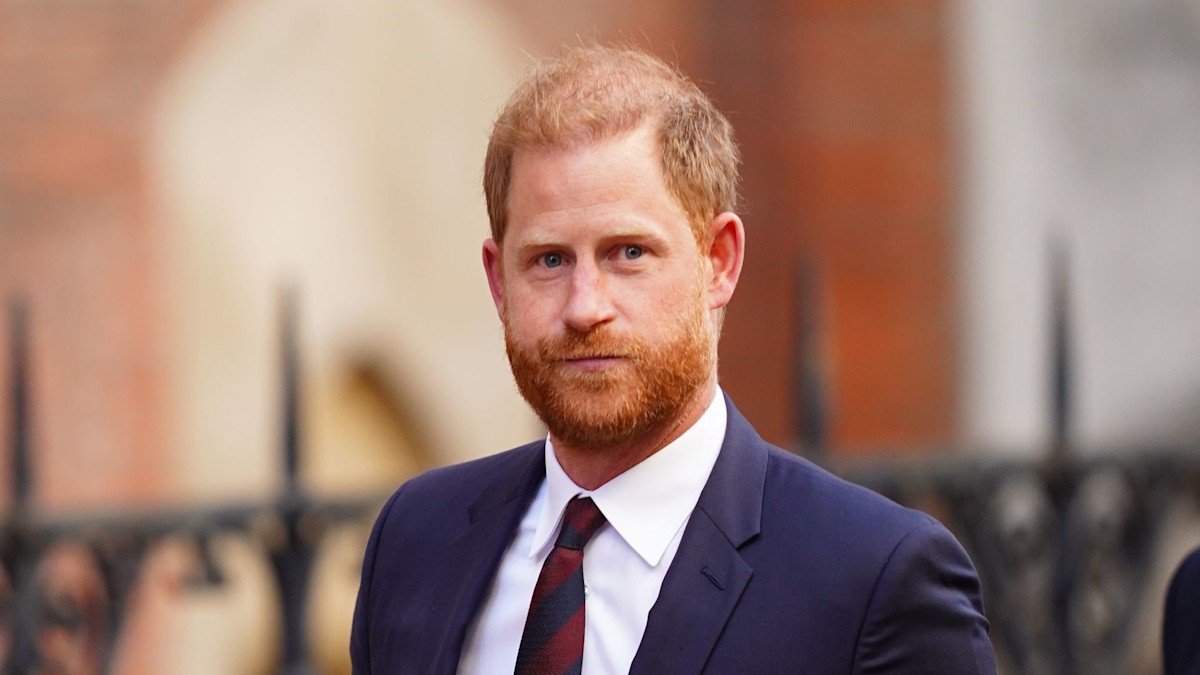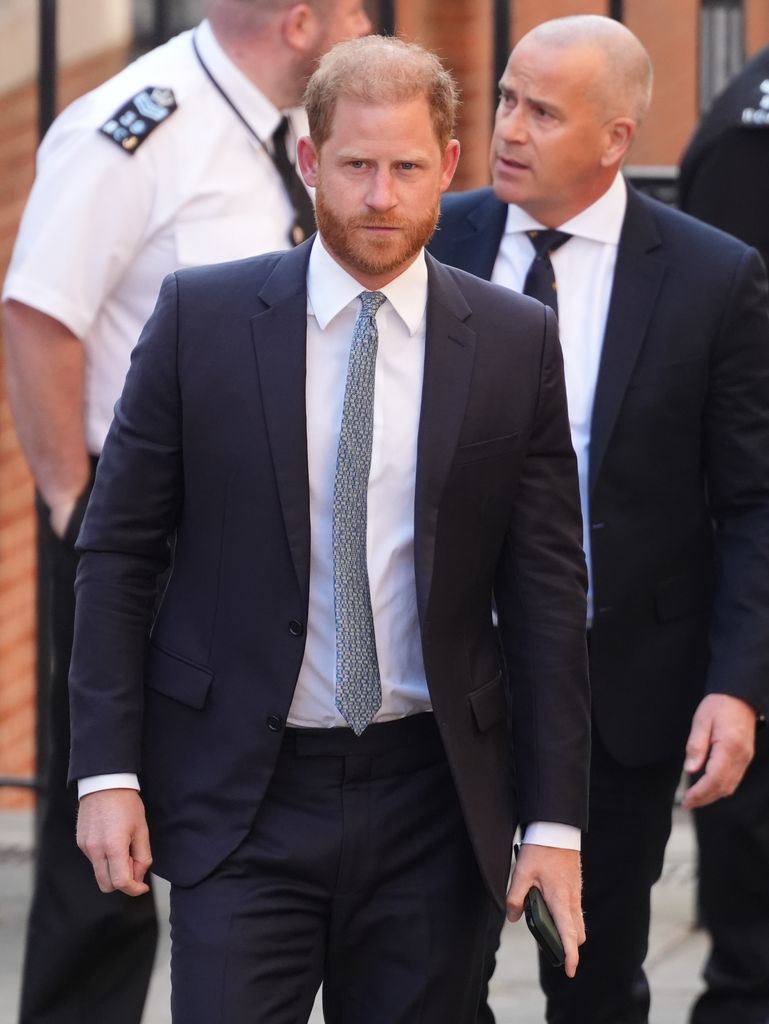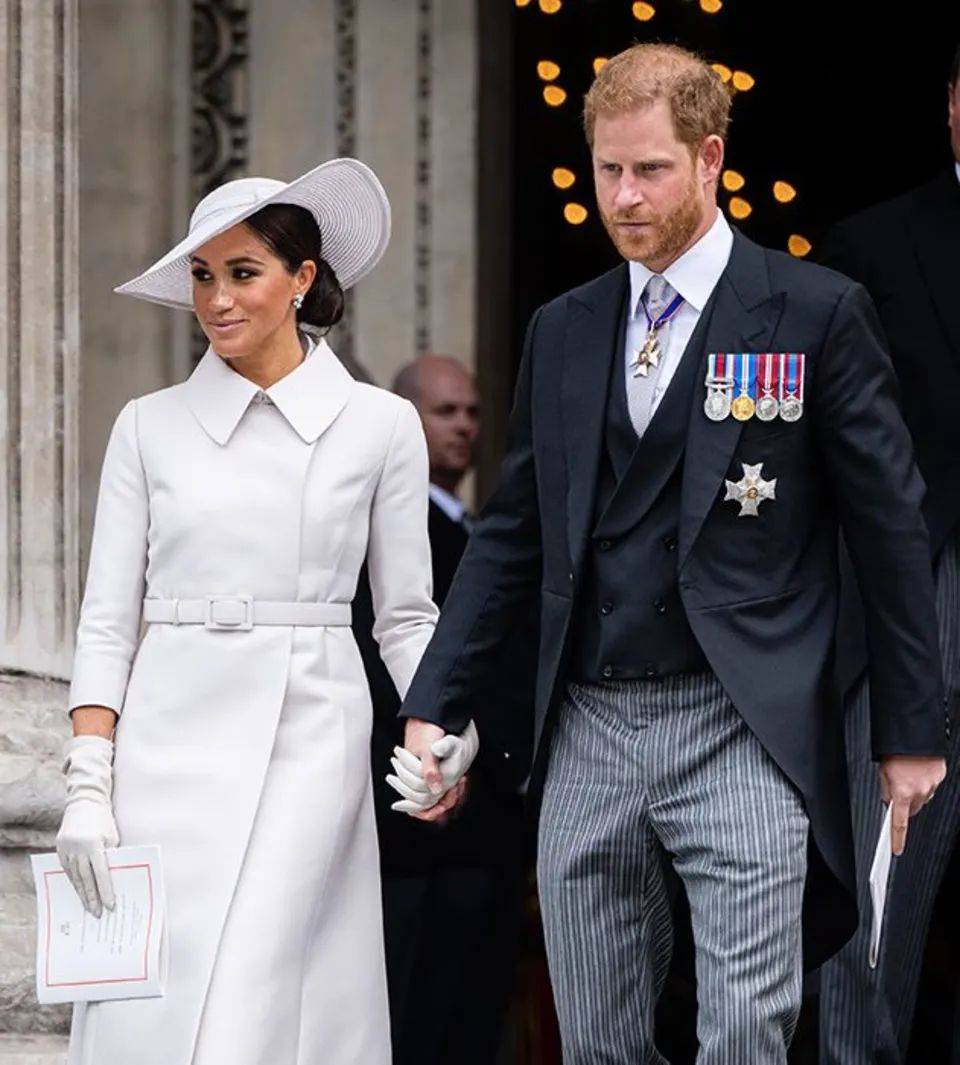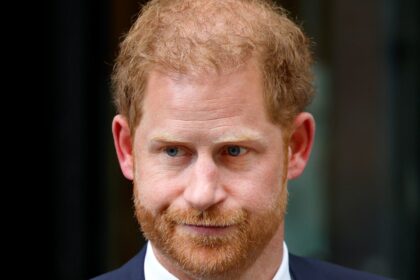The Duke of Sussex has said his “worst fears” about the withdrawal of his police protection were confirmed by evidence heard in private during his legal battle against the Home Office.
Prince Harry, 40, who appeared on both days of the two-day hearing at the Royal Courts of Justice also told The Telegraph that he was “exhausted” and “overwhelmed” by the legal battle.
The Duke, who stepped back as a senior royal with wife Meghan in 2020, is challenging the dismissal of his High Court claim against the Home Office over the decision of the Executive Committee for the Protection of Royalty and Public Figures (Ravec) that he should receive a different degree of protection when in the UK.
Part of the hearing was held in private this year in order for the court to hear confidential evidence.
As he left court on Wednesday, Harry told the newspaper that “people would be shocked by what’s being held back,” adding that his “worst fears have been confirmed by the whole legal disclosure in this case and that’s really sad”.
The Telegraph reported that Harry suggested the decision was an attempt to prevent him and his wife from quitting as working royals and moving abroad – which Buckingham Palace sources have strongly denied.
Harry said: “We were trying to create this happy house.”
Challenging the Home Office
The Duke’s appeal comes after retired High Court judge Sir Peter Lane ruled last year that Ravec’s decision, taken in early 2020 after Harry and Meghan quit as senior working royals, was lawful.
The Home Office, which has legal responsibility for the committee’s decisions, is opposing the appeal, with its lawyers previously telling the High Court that decisions were taken on a “case-by-case” basis.
Ravec’s final decision on 28 February 2020 stated that Metropolitan Police protection would no longer be appropriate after the Sussexes’ departure, and that they should receive a different degree of protection when in the UK.
It was decided that the Duke and Duchess would instead receive a “bespoke” security service, whereby they would be required to give 30 days notice of any plans to travel to the UK, with each visit being assessed for threat levels and whether protection is needed.
Duke of Sussex’s ‘life at risk’
At the end of the two-day appeal on Wednesday, Shaheed Fatima KC, for the Duke, said the “human dimension” of the case must not be forgotten.
She continued: “There is a person sitting behind me whose safety, whose security, and whose life is at stake.
“There is a person sitting behind me who is being told he is getting a special bespoke process when he knows and has experienced a process that is manifestly inferior in every respect.”
The Home Office is defending the appeal, previously telling the court the challenge “involves a continued failure to see the wood for the trees, advancing propositions available only by reading small parts of the evidence, and now the judgment, out of context and ignoring the totality of the picture”.
At the end of the hearing, judge Sir Geoffrey Vos said the Court of Appeal’s decision would be given in writing at a later date, which was “most unlikely” to be before Easter.
Read the full article here









